Despite a collective commitment, the failure of the world community to stop genocidal violence and humanitarian catastrophe in Darfur and other areas of the world has raised the question of whether the United States and the international community have the political will and capacities necessary to deter or stop genocide and other mass atrocities. The U.S. Senate, in December 2010, unanimously adopted Concurrent Resolution 71, recognizing the U.S. national interest in preventing and mitigating acts of genocide and other forms of mass atrocities against civilians.
At the 2005 United Nations World Summit, world leaders agreed that “the international community, through the United Nations . . . has the responsibility to use appropriate diplomatic, humanitarian, and other peaceful means . . . to help protect populations from genocide, war crimes, ethnic cleansing, and crimes against humanity. In this context, we are prepared to take collective action, in a timely and decisive manner, through the Security Council . . . should peaceful means be inadequate and national authorities manifestly fail to protect their populations . . . .”
A significant number of U.N. member states have hostility to intervention that is rooted in ideological debates over sovereignty, the distribution of power in the Security Council, and what “responsibility to protect” means in theory and practice. As a result, the Security Council has been slow to escalate its collective response.
Several major policy studies during the past decade have examined how the United States and its international partners can better meet the challenges of preventing and stopping mass atrocities including genocide and systematic ethnic cleansing. Major crises, such as Rwanda in 1994, Kosovo in 1999, and Sudan more recently, generate interest in bolstering the capacity and will of the United States and its partners to respond.
In 2008, former Secretary of State Madeleine Albright and former Secretary of Defense William Cohen, in “Preventing Genocide: A Blueprint for U.S. Policymakers,” observed: “Even when signs of preparation for genocide are apparent, there are opportunities to alter leaders decisions and interrupt their plans. By improving our crisis response system, we will be better prepared to mount coherent and carefully calibrated and timely preventive diplomacy strategies.”
In 2005, the JCPA Resolution on Stopping Genocide in the Sudan, asserted that, “as Jews, living in the shadow of the near annihilation of our people, we know too well the peril and the horror of global indifference, when people turn their backs on those in danger or in need. Mindful of the clarion call of our prophets to demand social justice and actively oppose injustice and cruelty and with the memories of the Holocaust in our hearts and minds, we look in horror upon the persecution of any group based on race, religion, or ethnicity, or other distinctions that are used to degrade the value of any human life. We should not permit “never again” to be a mere slogan. Rather it must represent a firm, moral commitment on our part not to stand idly by in the face of unspeakable terror and violence.” In 2009, JCPA resolved that the U.S. Government should “not exclude the option of military means if feasible, and in coalition with other countries, to protect the innocent civilians in Darfur and to ensure the delivery of humanitarian aid.”
The JCPA believes that:
- There are moral imperatives in taking action through diplomatic, legal, political and economic measures, as well as outreach to the media, and ultimately, if necessary, consideration of military operations against genocide or other mass atrocities.
- The U.S. should work with allies to improve responsiveness of the existing U.N. Security Council system while preparing and signaling a willingness, if the U.N. security council fails to act in future mass atrocity crises, to take other steps to address them.
- Even when military force is not ultimately used, the credible threat of it may be needed to strengthen non military efforts to deter or prevent further atrocities. Military operations short of major invasion could include: securing/controlling transportation routes and borders, reinforcing peace operations, enforcing no fly zones, providing safe havens, arms embargoes, and/or jamming broadcasts and other communications.
The JCPA:
- calls upon the government of the United States to view as a fundamental national and global interest the development of policies and global partnerships geared toward the prevention and ending of mass atrocities and, more particularly, prevention and punishment of genocide.
- Supports using diplomatic, legal, political, and economic measures, including outreach to the media to expose genocide and other mass atrocities and, where other options are unavailable or ineffective, consideration of military operations in the pursuit of this objective.
- Should advocate for economic measures including the option of targeted divestment from companies doing business with countries that are committing genocide.
- Advocate for the aforementioned positions and messages to decision makers and opinion molders in the general community, to the Administration, to Congress, and to the international community; and convey its own commitment to these principles to the Jewish community.
